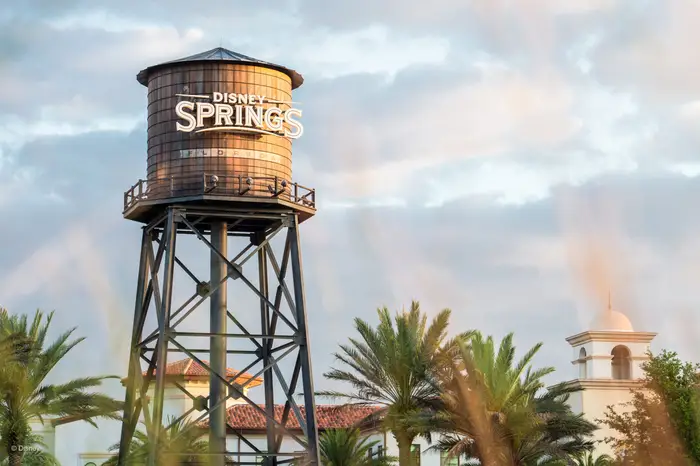How century-old arbitration laws are failing consumers in the digital age

Companies often include an arbitration clause in their terms and conditions
Companies are using a simple strategy to avoid courtroom litigation when disaster strikes: the fine print.
Terms and conditions have become a ubiquitous part of life for many people, from purchasing concert tickets to applying for a credit card. The legal agreement between businesses and their customers spells out both parties’ responsibilities under a contractual relationship.
That legal agreement can include an arbitration clause that removes a customer’s right to sue a company when things go wrong — whether the customer knows it or not. Instead, they can be forced to use a neutral third party to settle a dispute instead of a jury at trial.
In some cases, companies are using infinite arbitration clauses, which can extend to individuals beyond the original contractual parties, requiring all disputes to be settled out of the courtroom, and can be enforceable even after terminating a service.
“Infinite clauses stretch to the horizon and last forever. They are less a contractual provision and more a kind of arbitration servitude,” David Horton, a professor at the University of California, Davis, School of Law, wrote in the University of Pennsylvania Law Review.
It’s a near-century-old practice that some legal experts say should be modernized for the digital age.
The Disney case
In the case of large companies, arbitration clauses included in one service can often apply to any service the company offers.
This scenario gained attention earlier this year after a New York State man filed a wrongful-death lawsuit against Disney and a restaurant operator who runs a pub at Disney Springs. Disney does not own the restaurant.
Jeffrey Piccolo’s lawsuit said his wife, Kanokporn Tangsuan, died in October 2023 from a “severe acute allergic reaction” after dining at Raglan Road Irish Pub and Restaurant, where they asked a staff member on “numerous occasions” if allergen-free options were available. The staff member assured them the restaurant did, but Tangsuan collapsed inside Planet Hollywood later that night and was transported to a local hospital, according to the complaint.
A medical examiner’s investigation determined she died due to “anaphylaxis due to elevated levels of dairy and nut in her system.”

A lawsuit said Kanokporn Tangsuan died after visiting Disney Springs in Central Florida.
In response, Disney filed a motion to compel arbitration, arguing that Piccolo could not sue the company because he had agreed to its Terms of Use when signing up for a free Disney+ trial years earlier and again when purchasing tickets to its theme park. Disney quickly found itself in a PR nightmare as people online called the move “very dystopian” and urged users to cancel their Disney+ subscriptions in retaliation.
After the criticism, Disney reversed course and dropped its motion to compel arbitration. The case is pending in the Ninth Judicial Circuit Court in Orange County, Florida.
“At Disney, we strive to put humanity above all other considerations. With such unique circumstances as the ones in this case, we believe this situation warrants a sensitive approach to expedite a resolution for the family who have experienced such a painful loss,” Josh D’Amaro, the chairman of Disney Experiences, said in a statement.
Although Disney relented, Piccolo isn’t the only one to get caught up in the fine print, and he likely won’t be the last.
Lawyers and legal experts who spoke to B-17 said there is little consumers can do to avoid arbitration clauses in an era when signing contracts often happens with the tap of a finger.
“I think the only thing we can do is opt out of the internet,” Joseph Cammarata, a partner at Chaikin, Sherman, Cammarata & Siegel, P.C. in Washington DC, told B-17.
Large companies use arbitration to avoid damaging their reputations in a public trial

John and Georgia McGinty filed a complaint against Uber in February 2023.
Like Disney, Uber made headlines this year for a 2023 lawsuit filed by Georgia and John McGinty in the Superior Court of New Jersey.
In a September court filing, the couple said they were riding in an Uber in March 2022 when the driver ran a red light and crashed into another vehicle. The court filing said Georgia sustained multiple injuries, including rib, cervical, and lumbar spine fractures. She also experienced damage to her abdominal wall, pelvic floor, and a protruding hernia.
John sustained “severe” fractures to his left arm and wrist and a fractured sternum, according to the lawsuit.
Uber responded by filing a motion to compel arbitration, which that court denied. However, Uber appealed, and New Jersey’s appellate division sided with the company, which said the McGinty’s could not have a courtroom trial because Georgia agreed to its Terms of Use in 2022 for an unrelated Uber Eats order. The couple pushed back, saying their underage daughter made that order and have filed an appeal.
“While the plaintiffs continue to tell the press that it was their daughter who ordered Uber Eats and accepted the Terms of Use, it’s worth noting that in court they could only ‘surmise’ that that was the case but could not recall whether their daughter ordered food independently or if Georgia assisted,” an Uber spokesperson said in a statement.

Georgia McGinty said in a lawsuit that she was injured in a car crash during a 2022 Uber ride.
Stacey Lee, a professor of law and ethics at Johns Hopkins Carey Business School, told BI that consumers are increasingly running into arbitration clauses, but how businesses use them isn’t necessarily new.
“It has always been the default for businesses to want to go to arbitration for a number of reasons,” Lee said.
“You’re not going to have a class action lawsuit, you’re not going to have it plastered on top of the front page, there’s limited discovery, and businesses have a little more control over who the arbitrators are,” she said.
Arbitration usually has three arbitrators selected from the Arbitration Association of America. They’re often business professionals with experience in a specific field.
“Their knowledge of the customs and norms of the industry is very different than a judge’s, and because they’re on the business side, they have a tendency to agree more with the business interpretations of how things work,” Lee said.
Cammarata said companies know juries might be less sympathetic to their arguments.
“They want to limit public accountability and responsibility,” he said. “A jury may listen and say, ‘Uber, are you kidding me?'”
However, arbitration isn’t inherently anti-consumer or unfair to the average person. Compared to courtroom litigation, arbitration can cost less money and be a quicker process. People also can request an appeal in arbitration, but it’s not the same as a courtroom trial, where they would have the right to do so.
This private form of settling legal disputes arose with the Federal Arbitration Act in 1925, making it nearly 100 years old. John Carpenter, a partner at the California-based law firm Carpenter & Zuckerman, said the arbitration clause is due for an update.
“The problem is we’re applying a statute that goes back to 1925 to 2024,” Carpenter said, “It’s an entirely different world. The world we live in now wasn’t even conceivable in 1925.”
Carpenter said that arbitration was generally used to determine one-on-one agreements, but now “it’s being used digitally in terms of use agreements and essentially contracting away an entire branch of government with a click.”
How consumers protect themselves from arbitration clauses
Cammarata said one way consumers can navigate arbitration is to check if a company’s terms of use has an opt-out clause. That, however, relies on consumers reading through the businesses’ Terms of Use, which are often lengthy and written in legal jargon.
“First of all, they haven’t read it, so they don’t even know that they agreed to arbitration, let alone to opt out,” he said.
Lee said that while courts tend to be critical of arbitration clauses in employment agreements, they’re less so regarding things like streaming services or rideshare apps.
“Increasingly, courts are like, ‘You can read. You scroll through and click yes. It is now your responsibility,” Lee said. “You can walk away from the service, and it doesn’t affect your life, liberty, or pursuit of happiness.”
John said he believes courts need to reexamine the Federal Arbitration Act.
“It’s going to require legislative action to take a look at this,” he said.






